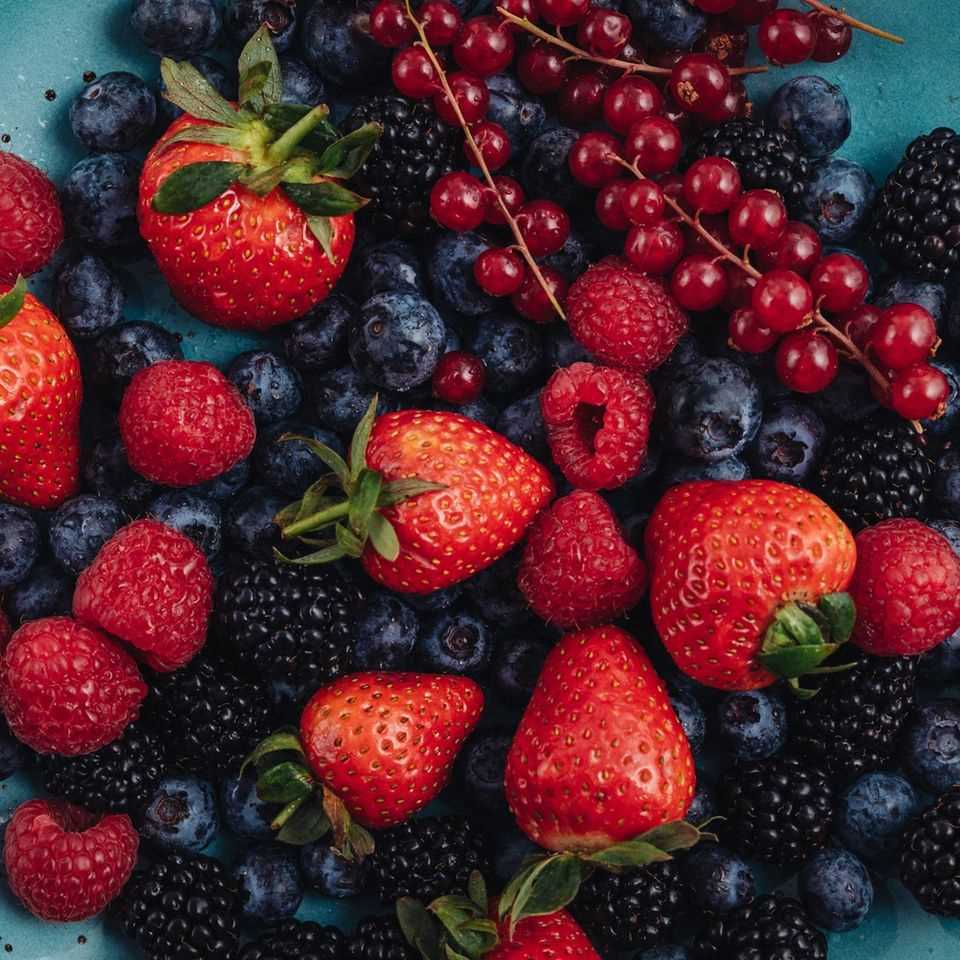Hidden sugar
8 foods that are secret sugar traps
© MaraZe / Shutterstock
Especially in large quantities, sugar is harmful to our health. The problem: Many supposedly healthy foods contain a lot of hidden sugar.
Fruit, muesli, fruit juice or yoghurt – we consider all of these foods to be health-promoting. But caution is advised here: because hidden sugar quickly destroys the benefits of these supposed superfoods. This is either because we simply underestimate the sugar content in these foods or because the manufacturers cleverly camouflage the sweetness – so that we often do not even recognize it as sugar.
Too much sugar consumption can make us sick in the long run. It can cause inflammation in the body, as well as cardiovascular diseases, heart attacks, diabetes and vascular or kidney damage. According to the German Nutrition Society, we shouldn’t eat more than 50 grams of sugar a day – and that’s already in a glass of cola or orange juice. It is all the more important that we pay attention to the foods in which there is a particularly high amount of hidden sugar.
Hidden Sugar: What Exactly Is It?
Some food producers add sugar to their dishes – even those that are actually not sweet at all. Because sugar not only extends the shelf life, but also improves the taste and consistency. In this way, manufacturers can save on other, often healthier, ingredients – such as real fruits in yoghurt.
Of course, these additives must be included in the list of ingredients. The problem: food manufacturers can use misleading terms here, which we cannot identify as sugar at first glance. For example:
- Ingredients with the endings “-ose” or “-sirup”, such as dextrose or maltose syrup
- Maltodextrin
- Barley malt, malt extract
- Sweet whey powder, skimmed milk powder
- natural fruit sweetness
There is a lot of hidden sugar in these foods
Fruits with a lot of sugar
As a rule, we want to do something good for our health with fruit. After all, fruits contain a lot of vitamins, minerals, and fiber. But unfortunately, some types of fruit are also very sugary. You should only eat these fruits in moderation:
- Dates: 63 grams to 100 grams
- Dried fruit: 40 to 60 grams per 100 grams
- Sweetened canned fruit: up to 44 grams per 100 grams
- Bananas: 17 grams of sugar per 100 grams
- Grapes: 16 grams of sugar per 100 grams
- Cherries: 12 grams of sugar per 100 grams
Juices & smoothies
The same applies, of course, to fruit juices and smoothies. Ready-made supermarket smoothies in particular often contain a lot of hidden sugar – up to 30 grams. You should also pay attention to the types of fruit that are processed in them and, preferably, choose products with a high proportion of vegetables.
Muesli + Co.
Cereals, muesli and muesli bars – that probably sounds like a healthy breakfast to us at first. But especially the ready-made mueslis from the supermarket contain a lot of hidden sugar – especially crunchy mueslis. There are up to 24 grams of sugar per 100 grams in it.
Salad dressings
For most people, salad is the epitome of a healthy meal. That’s true – at least until the dressing comes into play. Because some salad dressings contain a lot of sugar. The light versions in particular are often tough, because the manufacturers balance the reduced fat content with sugar in terms of taste. French dressing contains around 15 grams per 100 grams.
Ketchup
It looks similar with ketchup. Because although the sauce tastes spicy, there is often a lot of hidden sugar in it. Some types of ketchup contain up to 30 grams of sugar per 100 grams.
fruit yoghurt
Pure natural yogurt is healthy and contains few carbohydrates. But many people prefer to eat yoghurts with fruits – and they are often anything but lightweights when it comes to sugar. There are up to 14 grams in 100 grams of yogurt. Especially in the low-fat variants, the sugar often compensates for the lack of taste – similar to the salad dressings.
Aromatic water
Flavored mineral water is a popular alternative for people who want to forego soft drinks but do not like pure water. But here too, hidden sugar is often involved – up to six grams per 100 milliliters. Instead of drinking ready-made “infused water”, you should add a few berries, lemon or cucumber slices to your water for flavor.
Sparkling wine + wine
Sure: alcohol in large quantities is not healthy, we know that. But especially with wine and sparkling wine, this is often due to the sugar content. The lovely variants in particular are usually very sweet – ten times more sugar than in dry wine or sparkling wine. Incidentally, that also makes more headaches …
Sources used: dge.de ,heil.at, eatsmarter.de, codecheck.info


